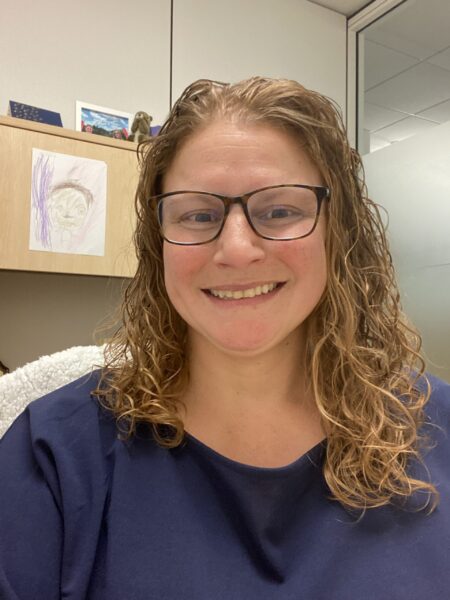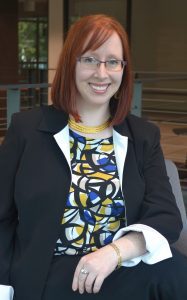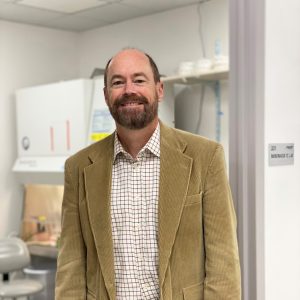
5 Questions With Michelle Kinder, Ph.D., Director of Translational Sciences at Incyte
“5 Questions With…” is a recurring BioBuzz series where we reach out to interesting people to share a little about themselves, their work, and maybe something completely unrelated. This week we welcome Dr. Michelle Kinder, Director of Translational Sciences at Incyte, a Wilmington, DE-based global biopharmaceuticals company developing therapeutics to treat a variety of serious unmet medical needs.
1) Please introduce yourself to our audience by looking back at your education, training, and career.
Cancer research has always been a personal passion for me. When I was 16, I promised my grandmother who was dying of lung cancer that I would cure cancer for her. She corrected me, “in memory of me.”
I discovered my interest in immunology in college while performing research in a breast cancer bone metastasis laboratory. This led me to pursue my Ph.D. in immunology at the University of Pennsylvania. However, I wanted to find a way to fuse my interests in cancer and immunology together. As such, for my postdoc work, I worked with Bob Schreiber at Washington University and I was so fortunate to work and publish about immuno-oncology in his laboratory.
I ultimately moved back to Philadelphia and decided to focus on finding an industry role, but at the time, there were limited roles in immuno-oncology. Instead, I worked first as a postdoc and then as a scientist focused on antibody effector function in a biologics department. Subsequently, I transitioned to the immuno-oncology department and was integrated into a cross-functional team, which helped me realize my own passion for translational research.
After some time, I decided to learn more about medical affairs, which I did as a Scientific Director for Immuno-Oncology at Incyte. In this role, I learned how to communicate complex medical data and served as the scientific medical expert for the commercial teams. While I highly valued this experience, I missed translational sciences and jumped at the opportunity to work in translational research again. My career journey thus far has come full circle, as having the medical training in U.S. Medical affairs has enabled me to be able to communicate more effectively with my clinical team in my current role of translational lead.
2) You have been with Incyte for almost 2 and a half years – what qualities about the company intrigued you and made you want to be a part of the team?
I was attracted to Incyte for its immuno-oncology pipeline. When I first joined Incyte as a Scientific Director, Immuno-Oncology in U.S. Medical Affairs, I had the opportunity to support the growing pipeline, explore novel biology and enable our therapeutics into clinical practice.
What I have found to be one of my favorite qualities of Incyte is the people who work here. I was fortunate that my former manager in U.S. Medical Affairs, Susan Snodgrass, was incredibly experienced and truly believed in career development. She gave me the space to create and grow but was always there when I needed support. Now, in translational sciences, I work for another highly intelligent, supportive and dedicated manager, Jeff Jackson.
In addition, my counterparts in translational sciences, discovery, clinical and commercial teams are highly collaborative. When I first started working at Incyte, I was told that good ideas come from everywhere on the matrix team. I truly feel heard when I raise concerns and ask questions and I feel welcomed – whether I am discussing a discovery or a clinical question – despite my current role in translational sciences.
3) Incyte is “committed to the relentless pursuit of science that can improve the lives of patients.” Why was this mission statement important in what you do day-to-day as the Director of Transitional Sciences?
In translational sciences, my role is to take discoveries from the laboratory and apply it to the clinic, then to develop understanding from the clinic and ask additional questions to the laboratory. I am responsible for developing biomarker strategies in the clinic, which could inform dose selection, patient selection, indication and combination strategies. I love that my job is to consistently ask difficult questions and creatively come up with experiments and solutions.
“Relentless pursuit” of science is a good description of my own personality and needs in a career, as well as the overall mission of Incyte. As such, I find my values are aligned with those of Incyte.
4) Having over 20+ years working in the life sciences field – what are some things you learned early on that helped you be successful throughout your career?
One of my great managers in the industry, Mike Quigley, told me, “drink from the fire hose as much as you can.” What he meant was to jump into a new role and quickly learn as much as you can. Once you feel you have stopped learning then move onto the next role so you can continue to grow. I look at my career as a journey where I have gotten education across different aspects of the pharmaceutical industry. Today, I am still learning and acquiring as much knowledge as I can, currently in the field of precision medicine and companion diagnostics.
One thing that I wished I had learned sooner was to find my voice. Once I matured in my own career, I vowed to always help my talented early career colleagues find their voice. I approach them with a problem and we brainstorm answers. I provide people the opportunity to present their own work and I always find ways to recognize good work. Another way I do this is through a community and blog that I built with my colleague to advance women in the pharmaceutical industry called Women in Pharma Careers.
5) If you had the opportunity to be cast in a role in your favorite movie, which one would you pick and why?
I love the character of Shuri in Black Panther. She is a hero scientist that comes up with amazing gadgets and is well-respected. She also has a strong love for her family. That is whom I want to be. I am looking forward to seeing more of her character in Wakanda Forever.
- About the Author
- Latest Posts
BioBuzz is a community led, experience focused, biotech and life sciences media and events company. BioBuzz highlights regional breaking news, industry professionals, jobs, events, and resources for business and career growth. Their weekly newsletter is subscribed to by thousands in the BioHealth Capital Region and Greater Philadelphia as the go-to for industry updates.






